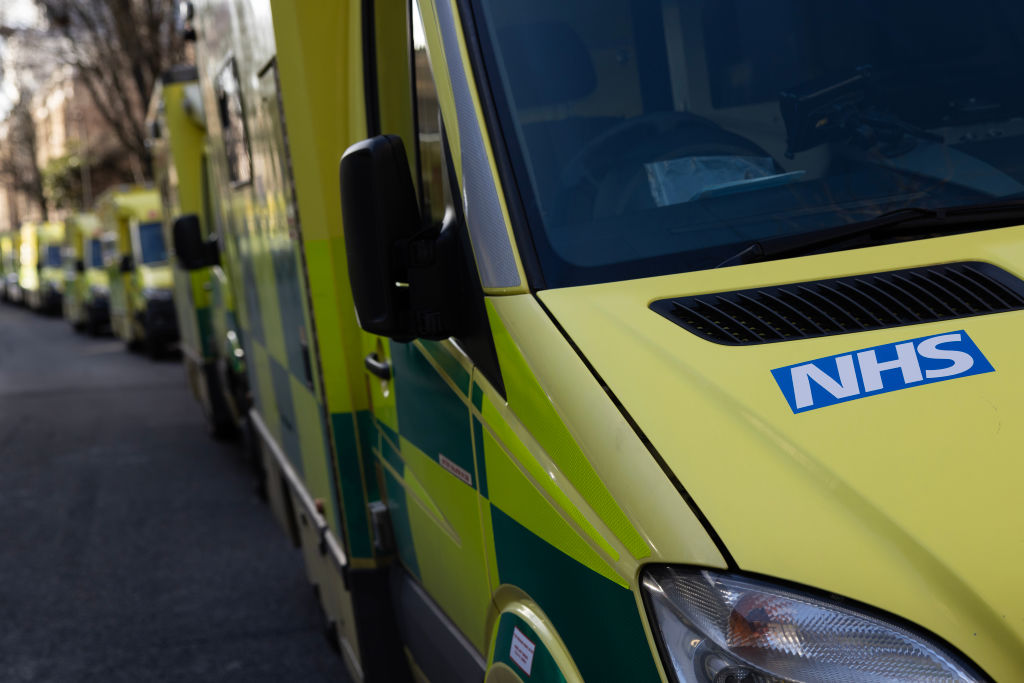We need more than ambulances to help kids’ mental health in the UK

There are 10 million people in the UK who will need new support for their mental health, 1.5 million of those will be children. So as much as we need the ambulances, we also need preventative care for our kids, writes Emily Simonoff.
It’s been clear for some time that Covid-19 has led to a second, more insidious epidemic – poor mental health. Successive lockdowns put enormous strain on people across the UK just as the pandemic struck at the heart of the NHS, with severe consequences for the provision of vital services, including mental health care.
A number of measures to alleviate the continuing strain on the health service – including 5,000 new beds and 800 new ambulances – have been announced by the government in the past month. Whether this investment can bring down A&E waiting periods and ambulance response times is quite rightly a primary, and urgent, concern.
But the government has also quietly begun facing up to the realities of our mental health epidemic. By promising 100 new ambulances designed specifically for mental health emergencies, it has shown it understands that the £150m set aside to tackle the crisis needs to be more than a capital injection – it must be used to fund facilities designed with the specific needs of mental health patients in mind.
That’s what my hospital, the Pears Maudsley Centre for Children and Young People, will provide when it opens its doors next year. This new facility in South-East London will lead the way to more effective, timely and inclusive mental health care for those who need it most.
The NHS Confederation’s Mental Health Network reported in February last year that there were 10 million people in England who will need new or additional support over the next five years. At least 1.5 million of those are children and young people, whose needs were already struggling to be meet by mental health services before the pandemic.
We’re only beginning to quantify how and how much the pandemic affected children and young people.
How? The lack of regular in-person contact with friends and adults outside the family, the loss of the structure provided by school life and leisure activities, and the sheer uncertainty around ill health, important examinations and the future.
How much? The figures are stark. According to data collected by the NHS programme Mental Health of Children and Young People in England, 1 in 6 children aged 7 to 16 had a probable mental health disorder in 2020, up from 1 in 9 just three years earlier. The latest data shows that, in 2022, an alarming 1 in 4 young people aged 17 to 19 showed signs of a disorder – rising from just 1 in 10 in 2017.
These numbers represent a crisis within a crisis – and one that is only likely to grow in the absence of tailored solutions to the issues faced by children and young people.
Through collaboration between the Trust and King’s College London, the Pears Maudsley Centre will bring mental health care and research together under one roof, with scientists and clinicians sitting side-by side and working together to identify the root causes of mental health problems and develop new, personalised treatments. The close collaboration of experts working in this field will also mean that new scientific discoveries can be rapidly translated into novel, more effective ways of preventing and treating mental health problems that are actually used in clinical care and everyday life.
When Covid hit, only 36 per cent of children and adolescents with a mental health disorder were seeing a specialist. Offering specialised care in a space built for their needs could encourage more young people to seek help. This could have far-reaching effects on our society.
Half of all mental illnesses begin to appear by the age of 15, and three quarters by the age of 24. Early intervention doesn’t just save lives – it saves money. Studies by the Department of Health have shown that preventative treatment of child mental health disorders can save around eight times the average cost of care.
When left untreated, poor mental health impacts everything from educational outcomes to employment opportunities and physical health. People with severe mental illness still have a life expectancy that is 20 years shorter than the average person. If we can prevent and treat mental health conditions earlier, they will have much less impact later in life.